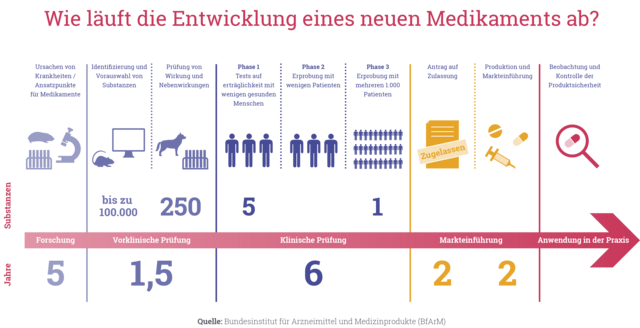Today is International Laboratory Animal Day. Founded in 1962 by the British animal rights activist, Lady Dowding, it is intended to commemorate the fate of laboratory animals around the world. She has set this day of action in honour of her husband on his birthday - 24 April.
Now, in the Corona Year, animal experiments are once again receiving special attention as new therapies against the virus are developed. Animal testing is a particularly controversial topic of public debate and the perception is often that animal testing is neither useful nor necessary. A recent public opinion survey conducted in the UK by the Understanding Animal Research (UAR) initiative on the use of animals in the research and development of treatments and vaccines for Covid-19 shows that there is a public rethink about this.
For example, the survey results show that a large majority, 73 percent of the 1,027 participants, are in favour of scientific research on mice, dogs and monkeys to develop vaccines and treatments to combat SARS CoV-2 infections. Eleven percent even stated that they had changed their views on animal testing since the outbreak of Covid-19 and now show a greater acceptance of the use of animals in research.
Stefan Treue, spokesperson of "Tierversuche verstehen", the German equivalent of the British UAR, and Director of the German Primate Center - Leibniz Institute for Primate Research in Göttingen, says: "Animal experiments in drug and vaccine development have always been important and indispensable in order to be able to assess the safety and, above all, the efficacy of a substance or vaccine for humans. Especially now, when a solution to the novel coronavirus is being desperately sought worldwide, it must be ensured that well-founded data are collected in order to ensure sustainable vaccination protection and the efficacy of a drug and, above all, to check all safety aspects before administering a new substance. There are, for example, diseases that can be aggravated by a vaccination and, to this end, animal experiments provide important information. Responsible animal experiments are indispensable to get the pandemic under control! Above all, mice are used for this purpose, but studies on other animal species such as monkeys are also indispensable. Animal-free methods are also used in research - but neither a petri dish, nor an organ-on-a-chip, nor a computer model alone will be able to defeat complex viral diseases".
Contact
Prof. Dr. Stefan Treue
+49 551 3851-115


